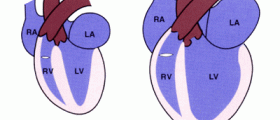
Heart disease
Heart disease is a common term for a number of conditions that can affect the heart, though, in some cases, and this term can also refer to the conditions that are related to the blood vessels. According to the statistical records, heart diseases are the most common causes of death, and if judging by the number of fatal outcomes, they are even more life-threatening than any type of a cancer. However, it is important to mention that many heart related conditions may be prevented and even successfully treated, which is why people should have regular checkups, including even those people who do not have any evident problems.
The most common forms and symptoms of a heart disease
When speaking about the forms of a heart disease, among the most common are certainly cardiovascular disease, characterized by either narrowed or blocked blood vessels that may further result in problems such as pain in the chest, heart attack, stroke, problems with irregular heart rhythm, high blood pressure, various infections of the heart muscle, and congestive heart failure.
As for the symptoms, they differ depending on the condition in question, but the most common ones are pain in the chest area, tiredness, weakness, shortness of breath, irregular heartbeats, swelling in the legs, hands, feet, ankles, or around the eyes, and faintness.
Causes of heart disease
The causes of heart disease are also different, and they depend on the type of the heart disease, but besides the main causes, there are some additional factors, which certainly contribute to the development of various heart diseases. For example, the most common cause of cardiovascular disease is arthrosclerosis, which occurs because of the accumulation of the plaque in the arteries, while the most frequent causes of arrhythmias are coronary artery disease, increased blood pressure, stress, smoking, alcohol or drug abuse, birth control pills, or even certain medications that have arrhythmia as a possible side effect. Viruses, bacteria, parasites, various diseases, or medications that provoke allergic reaction may cause heart infections.
However, the factors that certainly contribute to the appearance of a new heart disease or to the progression of an existing heart disease include hypertension or high blood pressure, high level of cholesterol in the blood, obesity and problems with overweight, diabetes, smoking, and physical inactivity. Also, people in certain age become more prone to heart problems, particularly after they turn 60, so they should be extra careful.

















Your thoughts on this
Loading...